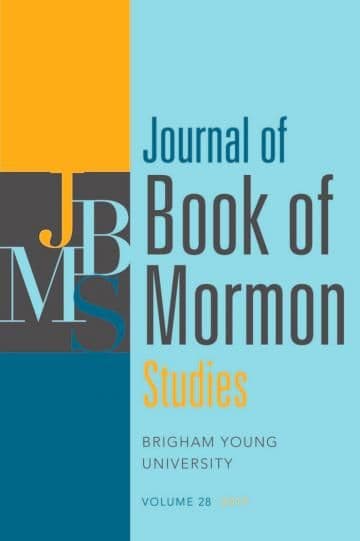Journal
Lehi in the Samaria Papyri and on an Ostracon from the Shore of the Red Sea

Title
Lehi in the Samaria Papyri and on an Ostracon from the Shore of the Red Sea
Publication Type
Journal Article
Year of Publication
2010
Authors
Chadwick, Jeffrey R. (Primary)
Journal
Journal of Book of Mormon Studies
Pagination
14-21
Volume
19
Issue
1
Abstract
Until the discovery of Ostracon 2071, dating from the fifth century bc, in the 1930s on the shores of the Red Sea, the name Lehi (lḥy in the discovered text) had been unattested in any extant document outside of the Book of Mormon. However, Nelson Gluek, along with many other scholars, including Hugh Nibley, vocalized lḥy as “Laḥai,” which pronunciation would have south Semitic roots. Chadwick argues, instead, that a Hebrew context for the ostracon would be more plausible and that therefore the more likely pronunciation would be “lĕḥy.” He also argues for a Hebrew origin of the compound name ʾblḥy, found in the fourth-century bc Samaria Papyri. Both of these names, given their strong Hebrew context, seem to confirm that Lehi was a name in use in ancient Israel and its surrounding areas.
Subject Keywords
Bibliographic Citation
Terms of use
Items in the BMC Archive are made publicly available for non-commercial, private use. Inclusion within the BMC Archive does not imply endorsement. Items do not represent the official views of The Church of Jesus Christ of Latter-day Saints or of Book of Mormon Central.